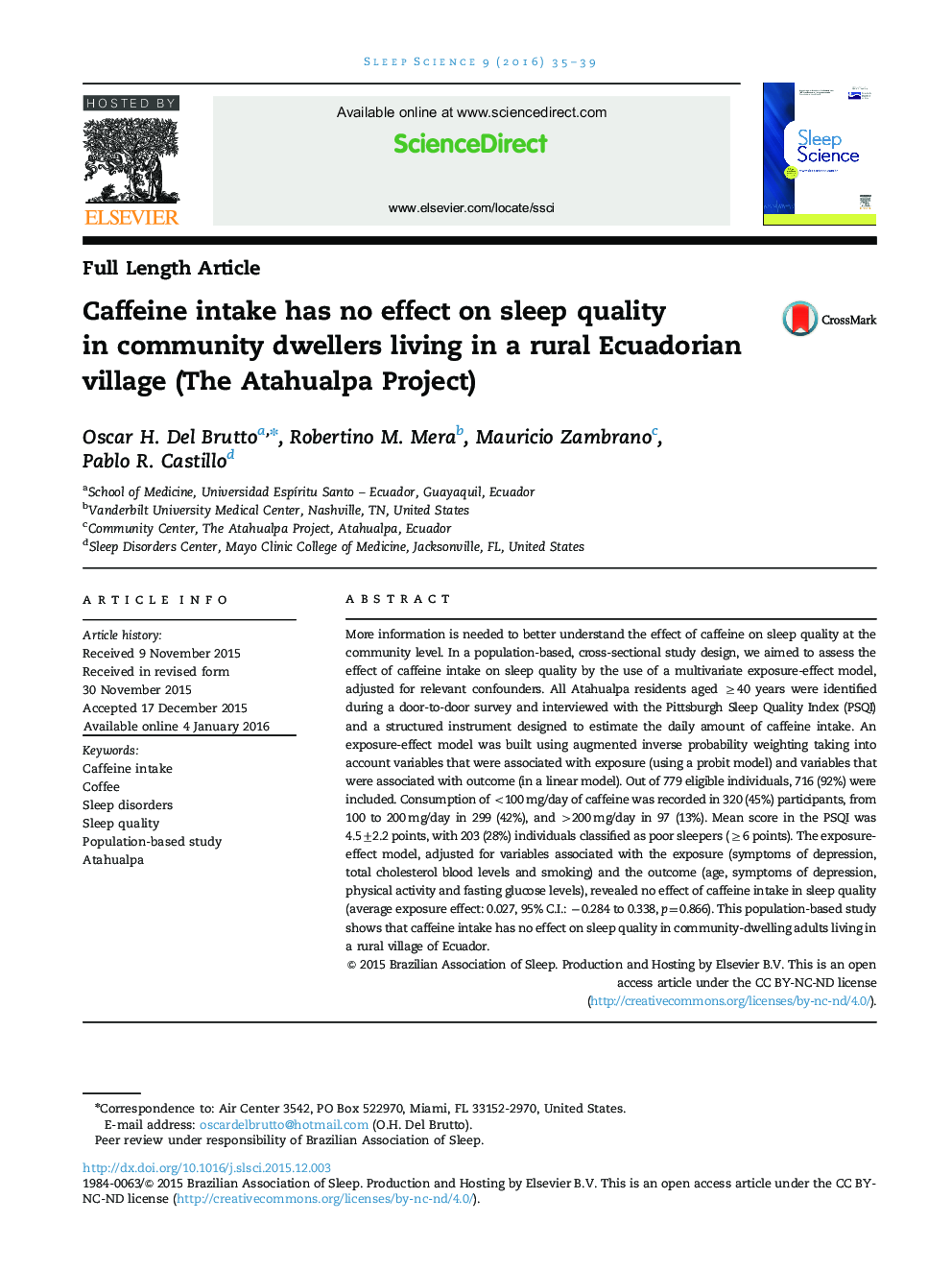| Article ID | Journal | Published Year | Pages | File Type |
|---|---|---|---|---|
| 3026646 | Sleep Science | 2016 | 5 Pages |
More information is needed to better understand the effect of caffeine on sleep quality at the community level. In a population-based, cross-sectional study design, we aimed to assess the effect of caffeine intake on sleep quality by the use of a multivariate exposure-effect model, adjusted for relevant confounders. All Atahualpa residents aged ≥40 years were identified during a door-to-door survey and interviewed with the Pittsburgh Sleep Quality Index (PSQI) and a structured instrument designed to estimate the daily amount of caffeine intake. An exposure-effect model was built using augmented inverse probability weighting taking into account variables that were associated with exposure (using a probit model) and variables that were associated with outcome (in a linear model). Out of 779 eligible individuals, 716 (92%) were included. Consumption of <100 mg/day of caffeine was recorded in 320 (45%) participants, from 100 to 200 mg/day in 299 (42%), and >200 mg/day in 97 (13%). Mean score in the PSQI was 4.5±2.2 points, with 203 (28%) individuals classified as poor sleepers (≥6 points). The exposure-effect model, adjusted for variables associated with the exposure (symptoms of depression, total cholesterol blood levels and smoking) and the outcome (age, symptoms of depression, physical activity and fasting glucose levels), revealed no effect of caffeine intake in sleep quality (average exposure effect: 0.027, 95% C.I.: −0.284 to 0.338, p=0.866). This population-based study shows that caffeine intake has no effect on sleep quality in community-dwelling adults living in a rural village of Ecuador.
